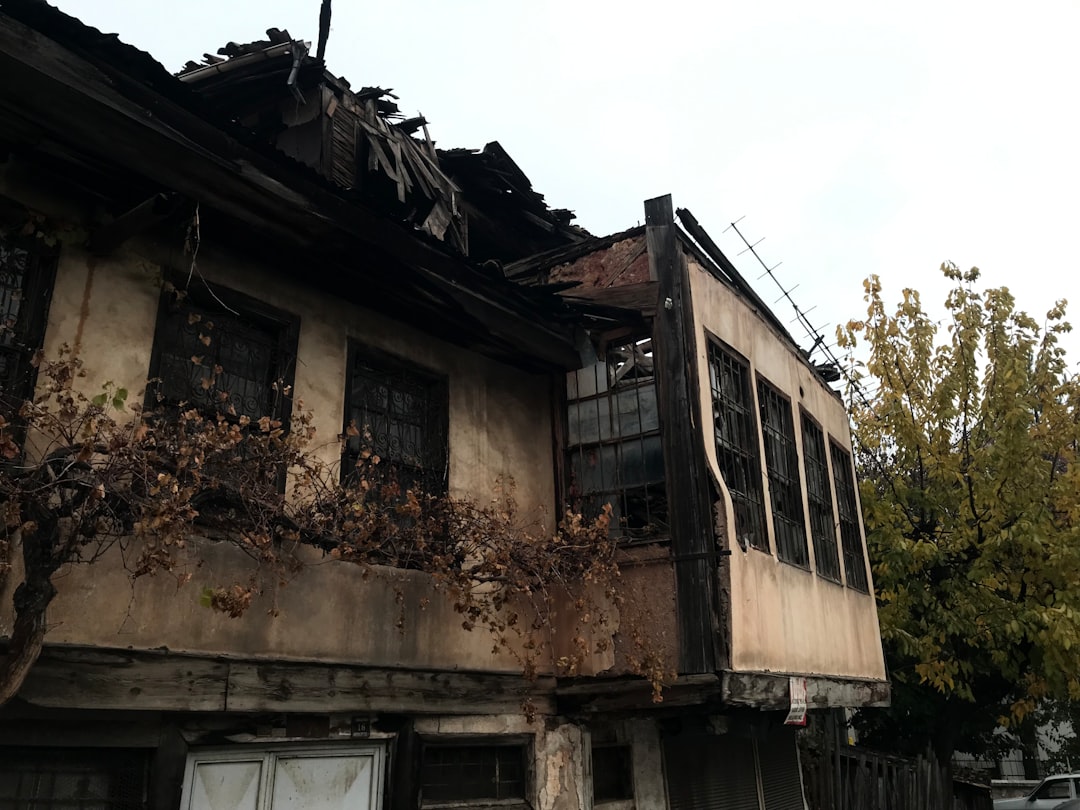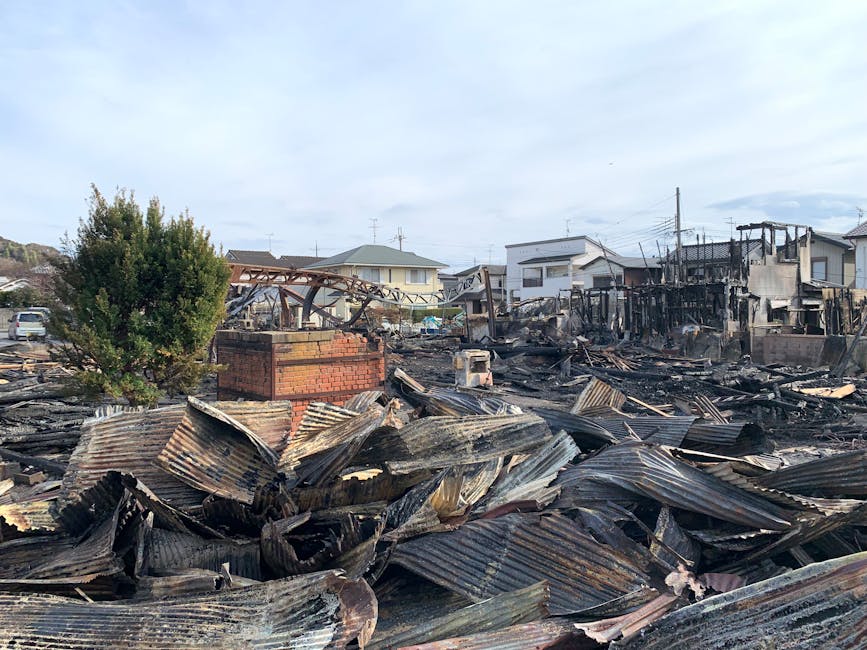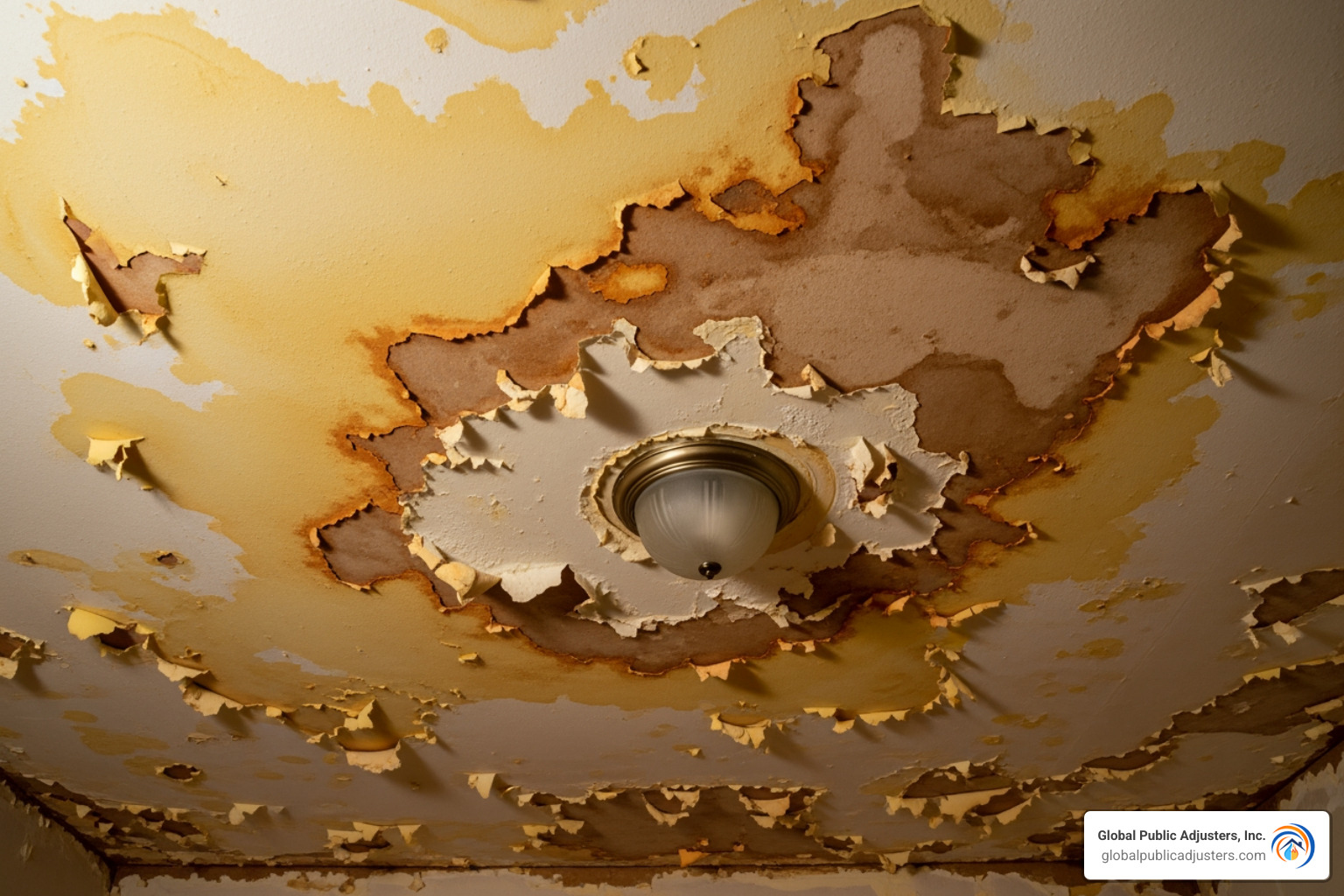Homeowners insurance after fire loss: 5 Expert Steps
When Your Home Goes Up in Smoke: The Insurance Reality Check
Homeowners insurance after fire lossis your financial lifeline, but the claims process is often overwhelming. While most standard policies cover fire damage, getting the full compensation you deserve requires more work than you might expect.
Quick Reference: Your Fire Insurance Coverage Basics
- Dwelling Coverage: Repairs or rebuilds your home’s structure.
- Personal Property: Replaces your belongings.
- Additional Living Expenses: Covers temporary housing and extra costs.
- Other Structures: Protects detached garages, sheds, and fences.
- Liability Protection: Covers damage to neighbors’ property.
The average home insurance claim for fire damage was$83,519 in 2021. With stakes this high, even small mistakes can cost you thousands.
The reality is that your insurance company’s first offer is rarely their best. Their adjusters work for them, not for you. Understanding this dynamic is key to a settlement that makes you financially whole, rather than one that forces you to pay for your own recovery.

Homeowners insurance after fire lossterms to know:
Understanding Your Fire Coverage: What Your Policy Actually Protects

Yourhomeowners insurance after fire lossis a package of different protections. Understanding these is the first step to a successful claim.
Core Coverages for Fire and Smoke Damage
Your policy provides several layers of protection for fire-related destruction.
- Dwelling coverageis for repairing or rebuilding the structure of your home, including the foundation, walls, roof, and built-in appliances.
- Other structures coverageprotects detached items like a garage, shed, or fence.
- Personal property coveragehelps you replace your belongings: furniture, electronics, clothing, and other contents of your home.
- Debris removalis typically included to cover the cost of clearing wreckage before rebuilding can begin.
Smoke damagecan be as destructive as flames, seeping into every crevice and leaving toxic residue. Your policy generally covers smoke damage, even if it comes from a neighbor’s fire. Our team specializes insmoke damage claims Orlandoand can help steer these complex situations.
Most policies cover accidental fires (candle, grease, electrical) and lightning strikes.Wildfire damageis also typically covered, though it has special considerations.
Financial Lifelines: Loss of Use and Liability
- Additional Living Expenses (ALE)is your financial lifeline when your home is uninhabitable. It covers theadditionalcosts of living elsewhere, such as temporary housing, restaurant meals if you can’t cook, pet boarding, and extra transportation costs.
- Personal liability protectionshields you from lawsuits if the fire spreads and damages a neighbor’s property or if someone is injured. It covers legal fees and settlement costs up to your policy limits.
Replacement Cost (RC) vs. Actual Cash Value (ACV)
This distinction is critical and directly impacts your payout.
- Actual Cash Value (ACV)pays the replacement cost of an itemminus depreciation. It pays what your 10-year-old couch is worth today, not what a new one costs.
- Replacement Cost (RC)pays to replace your damaged property with new items of similar kind and quality, without subtracting for depreciation. This is crucial for a full recovery.
Most policies first pay the ACV, then release the remaining amount (the “holdback”) once you’ve replaced the items. Be aware of deadlines for claiming this full amount.
| Factor | Actual Cash Value (ACV) | Replacement Cost (RC) |
|---|---|---|
| Payout Amount | Less (takes depreciation into account) | More (pays for new items/rebuild) |
| Premium Cost | Lower | Higher |
| Best Use Case | Lower initial cost, but less financial protection | Full financial protection, ideal for long-term recovery |
Policy endorsementslike extended or guaranteed replacement cost can provide extra protection if rebuilding costs exceed your dwelling limit.
Common Exclusions and Special Cases
Understand what your policy does not cover:
- Arson and intentional actsby you or a household member are never covered.
- Vacant property exclusionsmay apply if your home was empty for an extended period (often 30-60 days) before the fire.
- Wildfire coveragecan be expensive or hard to get in high-risk areas. If you can’t get traditional insurance, you may need to exploreFAIR plans for high-risk homes, which are state-sponsored programs of last resort.
Read your policy carefully. It’s better to understand your limits before a crisis than during one.
The Step-by-Step Guide to Filing Your Fire Insurance Claim
The actions you take immediately after a fire are critical for a successfulhomeowners insurance after fire lossclaim. A methodical, well-documented approach protects your rights and streamlines the process.
Your First 48 Hours: Critical First Steps
In the chaotic moments after a fire, these specific actions can make or break your claim.
- Safety first.Do not re-enter your home until fire officials give you the all-clear. Your life is irreplaceable.
- Mitigate further damage.You have a duty to take reasonable steps to prevent more damage. This could mean boarding up windows or covering a damaged roof with a tarp. Keep receipts for these expenses, as they are often reimbursable.
- Contact your insurer immediately.Use their 24/7 claims hotline to report the fire and start the process.
- Request an ALE advance.If your home is uninhabitable, ask for an advance on your Additional Living Expenses (ALE) coverage to cover immediate needs like hotels, food, and clothing.
- Obtain the official fire report.This document from your local fire department is a cornerstone of your claim.
The Power of Proof: Documenting Your Loss

Thorough documentation is the key to a fair settlement. Act like a detective building a case for your own financial recovery.
- Create a home inventory.If you don’t already have one, create a detailed list of everything lost or damaged. Include brand names, model numbers, purchase dates, and what you paid. This is tedious but essential for your personal property claim.
- Take photos and videos.Document everything before any cleanup begins. Capture the exterior damage, every room, and individual damaged items. Be thorough.
- Keep all receipts.Save every receipt related to the fire’s aftermath: emergency repairs, hotel bills, restaurant meals, new clothes, etc. These are proof for your ALE claim.
- Maintain a communication log.Note the date, time, person, and topic of every conversation with your insurer. Written records are vital as claims can take months.
- Store everything digitally.Upload photos, receipts, and your inventory to a cloud service to ensure your evidence is safe.
For a comprehensive roadmap, see our guide:5 Steps to Successfully File a Fire Damage Claim with Global Public Adjuster.
Dealing with the Insurance Company’s Adjuster
Your insurer will assign an adjuster to your case. It’s crucial to understand their role.
The company adjuster works for the insurance company, not for you.Their job is to assess the damage and settle the claim cost-effectively for their employer. Be cooperative and professional, but remember you are presenting evidence to support your claim.
Provide your detailed documentation, but don’t speculate or volunteer unasked information. Be cautious about giving recorded statements without preparation, as they become a permanent part of your file. Always verify the identity of anyone who shows up at your property claiming to be an adjuster or contractor to avoid scams.
If you feel overwhelmed, professional help is available. Learn more aboutUnderstanding How to Deal with an Insurance Adjuster After a House Fire.
Maximizing Your Settlement for Homeowners Insurance After Fire Loss
Your insurance company’s first offer is a starting point for negotiation, not the final word. Advocating for yourself is the key to ahomeowners insurance after fire losssettlement that truly restores your life.
From Lowball Offers to Fair Payouts
Many people accept the first offer without question, but you don’t have to. Here’s how to respond:
- Get independent repair estimates.Don’t rely solely on the insurer’s assessment. Get detailed estimates from at least two licensed, independent contractors. They often find damage the company adjuster missed.
- Understand recoverable depreciation.With Replacement Cost coverage, your insurer initially pays the Actual Cash Value and holds back the rest. You must actively claim this “recoverable depreciation” by completing repairs and submitting receipts before the deadline.
- Negotiate the settlement.Calmly present your evidence—photos, inventory, and independent estimates—to justify a higher amount. Point out specific discrepancies between their offer and your documented losses.
- Avoid premature claim closure.Fire damage can reveal itself over time. Don’t sign a final release until you are certain all damage has been found, which can take several months.
When to Hire a Public Adjuster for Your Fire Damage Claim

Sometimes, going it alone isn’t the best strategy. A public adjuster works exclusively for you. Consider hiring one for:
- Large or complex claims.With structural damage and extensive personal property loss, the complexity can be overwhelming. The average fire claim exceeds $83,000, so mistakes are costly.
- Disputed or denied claims.If your insurer is pushing back or offering an unreasonably low settlement, a public adjuster can find coverage and negotiate effectively.
- Feeling overwhelmed.A public adjuster can shoulder the burden of managing the claim, handling all communications and paperwork so you can focus on your family.
Public adjusters work to maximize your final payout. Their expertise in policy interpretation and negotiation often results in settlements that far exceed their fee. For over 50 years, Global Public Adjusters, Inc. has helped Florida homeowners steer these challenges. Learn more aboutWhy Hire a Public Adjuster for Fire Damage.
The Financial Aftermath: Premiums and Future Insurability
Filing a fire claim will likely affect your insurance costs.
- Premium increases are likely.A single fire claim can increase premiums by an average of 29%.
- Your CLUE report is impacted.Your claims history is tracked in a database and can affect your rates for up to seven years.
- Non-renewal is a risk.Insurers may choose not to renew your policy after a large claim, especially in high-risk areas.
When shopping for new coverage, be honest about your claims history. Even if your home is uninhabitable, continue paying your premiums to maintain crucial liability protection.
Proactive Steps: Fire Prevention and Claim Preparedness
The best way to handle a fire claim is to be prepared before one ever happens. A little preparation now can save you tremendous stress and financial hardship later.
Fortifying Your Home Against Fire

According to the NFPA, the top causes of home fires are cooking, heating equipment, and electrical issues. Addressing these can significantly reduce your risk.
- Smoke Alarms:Install alarms on every level, inside each bedroom, and outside sleeping areas. Test them monthly and replace units every ten years.
- Fire Extinguishers:Keep them in key areas like the kitchen and garage, and know how to use the PASS method (Pull, Aim, Squeeze, Sweep).
- Electrical Safety:Check cords for fraying and avoid overloading outlets. Old wiring can be a fire hazard and may impact yourhomeowners insurance after fire losscoverage.
- Kitchen Safety:Never leave cooking unattended and keep your stove clean of grease. Know how to smother a grease fire with a lid (never use water).
- Wildfire Defensible Space:If you live in a high-risk area, create a 30-foot anti-fire zone around your home by thinning vegetation.
For more guidance, see theseFire safety tips from the NFPA.
Preparing for a Potential Claim Before Disaster Strikes
Being prepared for a claim ensures a smoother recovery.
- Create a detailed home inventory.This is the single most important step for personal property claims. Go room-by-room, listing every item with its brand, model, purchase date, and value. Take photos and videos.
- Gather essential documents.Keep copies of your insurance policy, mortgage documents, and receipts for valuable items in a safe, accessible place.
- Store digital backups off-site.Keep your inventory, photos, and scanned documents in a cloud storage service or on a hard drive stored at another location.
- Review your policy limits annually.Construction costs and the value of your belongings change. Meet with your agent to ensure your dwelling and personal property coverage is sufficient to rebuild and replace everything.
Frequently Asked Questions about Homeowners Insurance After Fire Loss
Here are answers to common questions homeowners have after a fire.
How long does a fire insurance claim usually take?
The timeline for ahomeowners insurance after fire lossclaim can range from a few weeks to over a year. The key factors include:
- Claim Complexity:A small kitchen fire is resolved faster than a total home rebuild.
- Your Documentation:Organized, complete photos, inventories, and receipts speed up the process.
- Insurer’s Response Time:This can vary, especially during widespread disasters like wildfires.
- Negotiation and Disputes:Disagreements over costs or coverage will cause delays.
You can typically expect an initial payment for immediate needs (ALE) within a week, but the full settlement for structural and property damage will take longer.
What can I do if my insurance company denies my fire claim?
A denial is not the final word. Take these steps:
- Read the denial letter carefully.Insurers must provide a specific reason for the denial.
- Compare their reason to your policy.The company’s interpretation may be debatable. Look for ambiguities in the policy language.
- Gather more evidence.Get witness statements or an independent fire investigator’s report if the cause is disputed.
- Appeal the decision in writing.Formally request a review and present your evidence to rebut their reasoning.
If an internal appeal fails, it’s time to seek professional help from a public adjuster or an attorney. Learn more aboutWhat to Do When Your Home Insurance Claim Is Denied.
Do I have to use the insurance money to rebuild my house?
This depends on your policy, your mortgage lender, and state laws.
- With Replacement Cost (RC) coverage,you generally must repair or replace the property to receive the full value (including the depreciation holdback). If you don’t rebuild, you’ll likely only receive the lower Actual Cash Value (ACV).
- Your mortgage lenderhas a say. They are named on the insurance check and will likely hold the funds in escrow, releasing them as repairs are completed to protect their investment.
- State lawsmay offer flexibility. Some states, like California, allow policyholders to use their benefits to buy a new home elsewhere after a total loss.
This is a personal decision with significant financial implications. You canLearn more about selling a fire-damaged houseto understand the complexities.
Conclusion
The journey back from a house fire is a marathon.Homeowners insurance after fire lossis your financial foundation, but securing a fair settlement requires patience, meticulous documentation, and an understanding of your rights. Every photo, receipt, and documented conversation builds your case.
Your insurance company’s first offer is rarely their final one. With the average fire claim representing life-changing money, how you manage the process can mean a difference of thousands of dollars.
You don’t have to face this complex process alone. When you’re dealing with the trauma of losing your home, fighting for fair compensation can feel impossible.
For over 50 years, Global Public Adjusters, Inc. has been the advocate Florida homeowners trust.We manage claims to secure the maximum settlement. We know how insurance companies work to minimize payouts and how to counter them. Our expertise lets you focus on healing while we handle the negotiations.
Insurance companies have professionals protecting their interests. Shouldn’t you have an expert working exclusively for yours? Don’t steer this alone. Learn how we can manage yourFire Damage Claims in Orlandoand help you rebuild.



